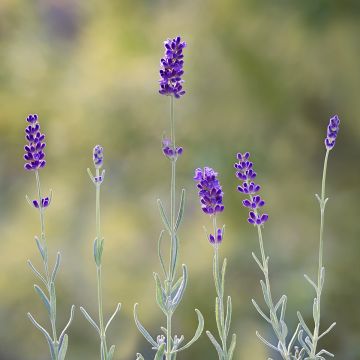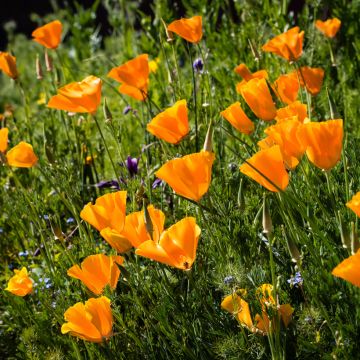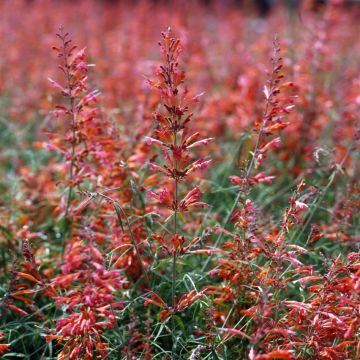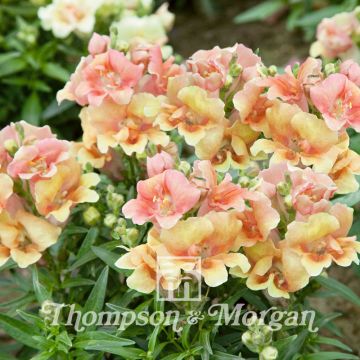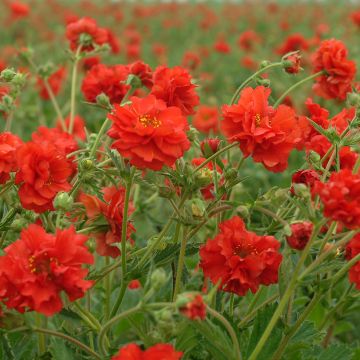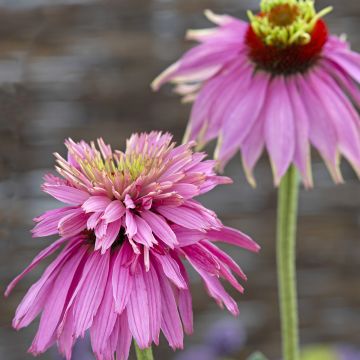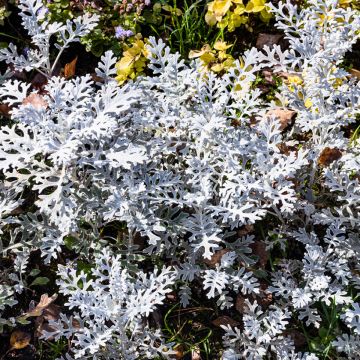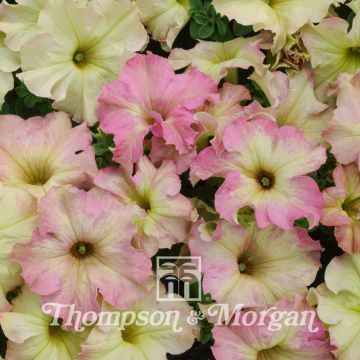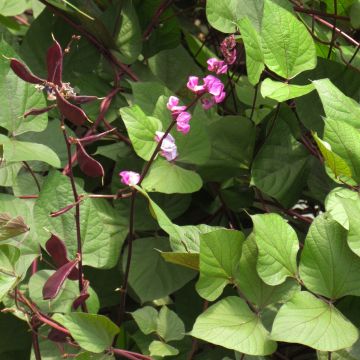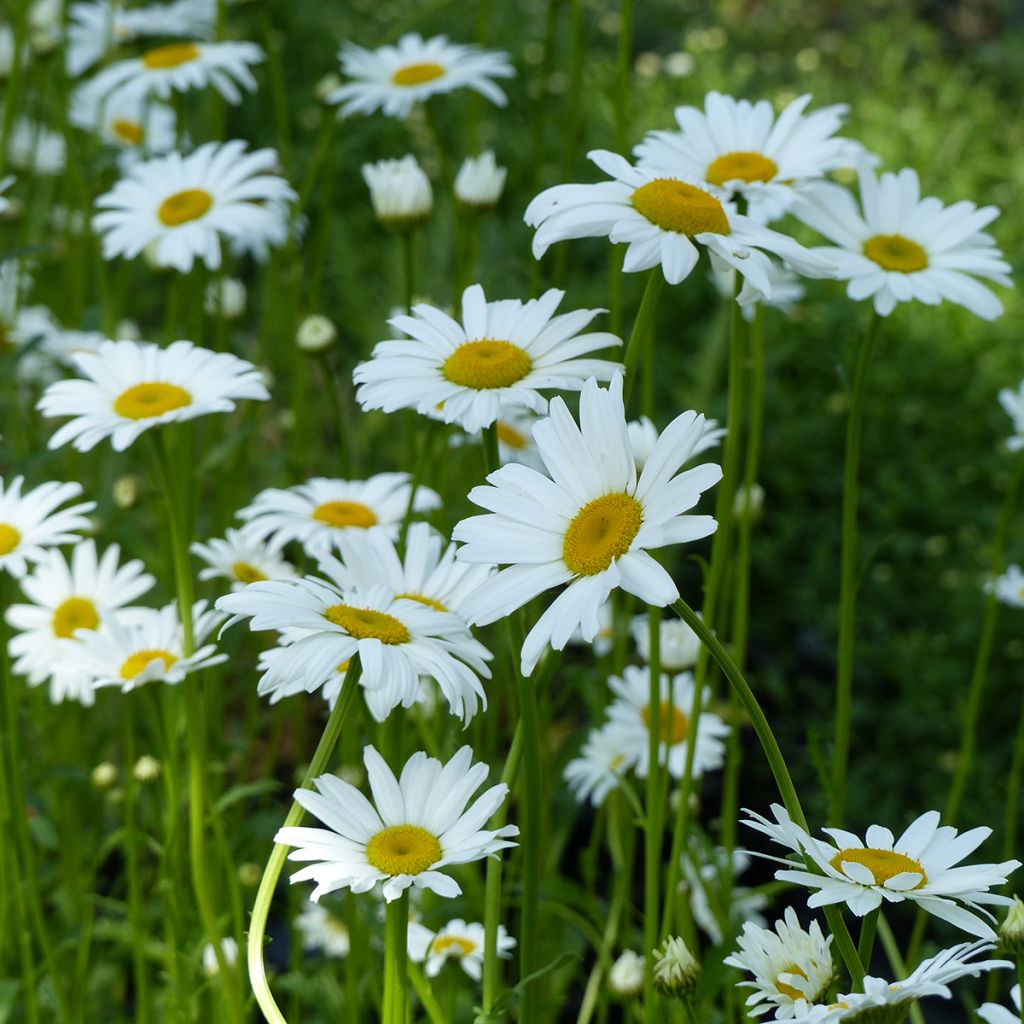

Leucanthemum vulgare Maikönigin - Oxeye Daisy seeds
Leucanthemum vulgare Maikönigin - Oxeye Daisy seeds
Leucanthemum vulgare Maikönigin
Oxeye Daisy, Dog Daisy, Moon Daisy
Special offer!
Receive a €20 voucher for any order over €90 (excluding delivery costs, credit notes, and plastic-free options)!
1- Add your favorite plants to your cart.
2- Once you have reached €90, confirm your order (you can even choose the delivery date!).
3- As soon as your order is shipped, you will receive an email containing your voucher code, valid for 3 months (90 days).
Your voucher is unique and can only be used once, for any order with a minimum value of €20, excluding delivery costs.
Can be combined with other current offers, non-divisible and non-refundable.
Home or relay delivery (depending on size and destination)
Schedule delivery date,
and select date in basket
This plant carries a 6 months recovery warranty
More information
We guarantee the quality of our plants for a full growing cycle, and will replace at our expense any plant that fails to recover under normal climatic and planting conditions.
Would this plant suit my garden?
Set up your Plantfit profile →
Description
Leucanthemum vulgare 'Maikönigin', or May Queen Oxeye Daisy, is a common wild Daisy that stands out for its later and longer flowering, as well as its smaller white flowers. It embodies the wild and rustic side, so appreciated in this plant. It is natural and simple and works well in flower arrangements and in a natural garden, blending with perennial borders and large flower beds. Its foliage disappears in winter to reappear vigorously in spring. This robust and easy-to-grow plant has a charm of its own.
Leucanthemum vulgare, often called the Oxeye Daisy or Common Daisy, belongs to the large Asteraceae family, also known as "composites" because what appears to be a flower is actually a composition of tiny flowers gathered in an inflorescence called a head. It is a rhizomatous herbaceous perennial plant native to a vast area ranging from Western Europe to Siberia. It is a robust, hardy plant, capable of adapting to various climates.
The Maikönigan cultivar is a selection of Leucanthemum vulgare with a later flowering period, from May to June, and more numerous and smaller flowers. It forms a bushy clump about 0.80m (3ft) tall and 0.60m (2ft) wide over time. From a large basal rosette, a lush tuft of numerous leafy, deciduous stems emerges. The leaves, on long petioles, are dark green, oval-shaped, spatulate, thick, and slightly toothed. The flowering period extends from May to August. At the end of the upright and rigid stems, solitary flower heads measuring 6 to 8cm (2 to 3in) in diameter appear. They have slender, flat white ligules arranged in a simple crown around a golden yellow centre composed of small sessile flowers.
Maikönigan is an easy to grow plant, hardy down to -15°C (5°F) that prefers rich, moist, and well-drained soil. It thrives in full sun or partial shade, making it suitable for planting near large trees in the garden or in lightly shaded beds. To prolong its flowering, regularly remove faded flowers. Highly valued for its vigour and robustness, it is also resistant to diseases and tolerates heat well. In flower beds or borders, it can be combined with Gauras, Cosmos, Coreopsis, Delphiniums, Echinaceas, or grasses like Stipa tenuifolia or Miscanthus sinensis Adagio for a contemporary look. Planted at the base of a wall or in a cool rockery, it pairs well with Valerian, Bellflowers, Yarrow, and more structured plants like blue-leaved or variegated Euphorbia characias. The natural, rustic character of this perennial is well-known, so it blends perfectly with Wild Poppies, Wild Chicory, or Rose Campion for a wilder effect.
Report an error about the product description
Flowering
Foliage
Plant habit
Botanical data
Leucanthemum
vulgare
Maikönigin
Asteraceae
Oxeye Daisy, Dog Daisy, Moon Daisy
Leucanthemum vulgare 'Maikonigin' - seeds
Cultivar or hybrid
Other Thompson and Morgan seeds
View all →Planting and care
Sowing:
Sow from late winter to late spring (February to May) or from late summer to autumn (August to October).
Sow indoors in pots or trays containing potting compost, at a temperature of 13 to 16°C (55.4 to 60.8°F). Barely cover the seeds with vermiculite or sifted compost. The seed needs light to germinate. The compost should be kept moist but not waterlogged. Germination should occur within 21 to 28 days.
If there is no germination or the germination rate is low, move the seedlings to a cold area at 4°C (39.2°F) (in the fridge) for two to four weeks, then return them to full light and higher temperature. This will stimulate germination as the seeds can require vernalization to break dormancy. Germination should occur after this "warm-cold-warm" period.
Transplant into 7.5 cm (3in) pots when the seedlings have developed 2 leaves and are easily handled. Gradually acclimatise them to outdoor conditions for 10 to 15 days before plantingout.
Choose a sunny and well-drained location for the best growth. Leucanthemum vulgare Maikönigin tolerates some shade, but will be less floriferous. Space the plants 70 cm (28in) apart.
Cultivation:
Plant Leucanthemum vulgare Maikönigin in deep, loose, moist, even occasionally dry, not too rich but well-drained soil. This plant tolerates limestone perfectly. It thrives in a sunny, or at most semi-shaded, exposure. It can withstand temperatures as low as -20°C (-4°F). Regularly remove faded flowers and clean the plant in spring to remove dead foliage. This daisy can be attacked by aphids and snails, and may develop foliar spots.
Sowing period
Intended location
This item has not been reviewed yet - be the first to leave a review about it.
Haven't found what you were looking for?
Hardiness is the lowest winter temperature a plant can endure without suffering serious damage or even dying. However, hardiness is affected by location (a sheltered area, such as a patio), protection (winter cover) and soil type (hardiness is improved by well-drained soil).

Photo Sharing Terms & Conditions
In order to encourage gardeners to interact and share their experiences, Promesse de fleurs offers various media enabling content to be uploaded onto its Site - in particular via the ‘Photo sharing’ module.
The User agrees to refrain from:
- Posting any content that is illegal, prejudicial, insulting, racist, inciteful to hatred, revisionist, contrary to public decency, that infringes on privacy or on the privacy rights of third parties, in particular the publicity rights of persons and goods, intellectual property rights, or the right to privacy.
- Submitting content on behalf of a third party;
- Impersonate the identity of a third party and/or publish any personal information about a third party;
In general, the User undertakes to refrain from any unethical behaviour.
All Content (in particular text, comments, files, images, photos, videos, creative works, etc.), which may be subject to property or intellectual property rights, image or other private rights, shall remain the property of the User, subject to the limited rights granted by the terms of the licence granted by Promesse de fleurs as stated below. Users are at liberty to publish or not to publish such Content on the Site, notably via the ‘Photo Sharing’ facility, and accept that this Content shall be made public and freely accessible, notably on the Internet.
Users further acknowledge, undertake to have ,and guarantee that they hold all necessary rights and permissions to publish such material on the Site, in particular with regard to the legislation in force pertaining to any privacy, property, intellectual property, image, or contractual rights, or rights of any other nature. By publishing such Content on the Site, Users acknowledge accepting full liability as publishers of the Content within the meaning of the law, and grant Promesse de fleurs, free of charge, an inclusive, worldwide licence for the said Content for the entire duration of its publication, including all reproduction, representation, up/downloading, displaying, performing, transmission, and storage rights.
Users also grant permission for their name to be linked to the Content and accept that this link may not always be made available.
By engaging in posting material, Users consent to their Content becoming automatically accessible on the Internet, in particular on other sites and/or blogs and/or web pages of the Promesse de fleurs site, including in particular social pages and the Promesse de fleurs catalogue.
Users may secure the removal of entrusted content free of charge by issuing a simple request via our contact form.
The flowering period indicated on our website applies to countries and regions located in USDA zone 8 (France, the United Kingdom, Ireland, the Netherlands, etc.)
It will vary according to where you live:
- In zones 9 to 10 (Italy, Spain, Greece, etc.), flowering will occur about 2 to 4 weeks earlier.
- In zones 6 to 7 (Germany, Poland, Slovenia, and lower mountainous regions), flowering will be delayed by 2 to 3 weeks.
- In zone 5 (Central Europe, Scandinavia), blooming will be delayed by 3 to 5 weeks.
In temperate climates, pruning of spring-flowering shrubs (forsythia, spireas, etc.) should be done just after flowering.
Pruning of summer-flowering shrubs (Indian Lilac, Perovskia, etc.) can be done in winter or spring.
In cold regions as well as with frost-sensitive plants, avoid pruning too early when severe frosts may still occur.
The planting period indicated on our website applies to countries and regions located in USDA zone 8 (France, United Kingdom, Ireland, Netherlands).
It will vary according to where you live:
- In Mediterranean zones (Marseille, Madrid, Milan, etc.), autumn and winter are the best planting periods.
- In continental zones (Strasbourg, Munich, Vienna, etc.), delay planting by 2 to 3 weeks in spring and bring it forward by 2 to 4 weeks in autumn.
- In mountainous regions (the Alps, Pyrenees, Carpathians, etc.), it is best to plant in late spring (May-June) or late summer (August-September).
The harvesting period indicated on our website applies to countries and regions in USDA zone 8 (France, England, Ireland, the Netherlands).
In colder areas (Scandinavia, Poland, Austria...) fruit and vegetable harvests are likely to be delayed by 3-4 weeks.
In warmer areas (Italy, Spain, Greece, etc.), harvesting will probably take place earlier, depending on weather conditions.
The sowing periods indicated on our website apply to countries and regions within USDA Zone 8 (France, UK, Ireland, Netherlands).
In colder areas (Scandinavia, Poland, Austria...), delay any outdoor sowing by 3-4 weeks, or sow under glass.
In warmer climes (Italy, Spain, Greece, etc.), bring outdoor sowing forward by a few weeks.






























